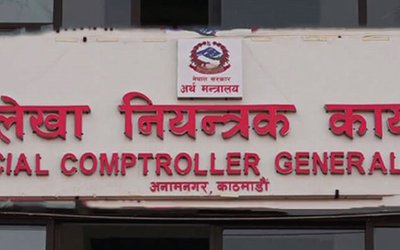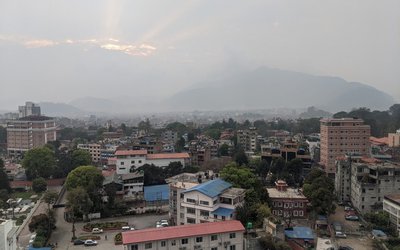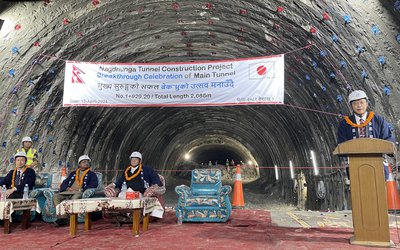Neetu Thapa Magar wore a despondent look when she went to the office of Morang Industry association to receive the final payment from Surya Nepal Garment Factory that formally shut down in the third week of September.
“It was true we had carried out agitation. But we did not intend to see the factory close down. I am really sad,” said Magar, one of the almost 600 women workers who lost their jobs due to the protracted struggle between workers and the management.
Gita Regmi, another worker, said they had found dependable employment in the factory. “It was good for the ladies compared to other factories,” she said.
Magar and Regmi along with other women workers are sad that they lost job on the eve of Dashain festival.
It had been four months since the trouble flared up in one of the country’s largest garment factory.
A spat between management and workers had worsened after a group of workers locked up managers and administrative staffs leading to intervention by police.
Subsequently, Surya Nepal garment, which is a subsidiary of ITC Limited of India, located in eastern Nepalese city of Biratnagar, announced in August that it would shut down its operations citing cancellation of its export orders due to labour unrest.
The factory had remained closed since previous two months after the workers there agitated demanding pay during strike period.
“In the subsequent period we had tried to hold dialogue and settle the issue amicably but in vain. Our importers then cancelled their orders. We were left with no option than to shut down our entire operations,” said Rabi KC, vice president of Surya Nepal.
A trade union leader affiliated to the Maoists, Tej Lal Karna, denied that the company shut down due to their agitation. “The company only wanted a pretext to close down,” he said.
The garment factory established with the investment of around Indian Rs 40 crore used to export 90 percent of its production to India and Europe. Ninety-five percent of its nearly 600 workers were women.
Earlier, Dabur Nepal and Unilever Nepal had also faced labour problem. The GMR group that is working in the Upper Karnali hydropower project, too, faced troubles with workers and local people.
Huge Cost
Many say, the latest episode of Surya Nepal shows how the continued labour unrest is eating into the vitals of Nepalese industrial sector.
“Labour unrest is becoming a huge problem. In the last three years, we have seen almost 80 percent of manufacturing plants shut down, mainly due to this problem,” said Bhaskar Raj Rajkarnicar, senior vice president of Federation of Nepalese Chambers of Commerce and Industry (FNCCI) – the umbrella body of Nepalese private sector.
Economists have said that these episodes will deter even domestic, let alone Foreign Direct Investment (FDI) in the country.
- TANAHU HYDROPOWER PROEJCT: A Significant Achievement
- Apr 15, 2024
- AMBASSADOR HANAN GODAR: Sharing Pain With A Nepali Family
- Mar 30, 2024
- VISIT OF KfW AND EIB TO NEPAL : Mission Matters
- Mar 25, 2024
- NEPAL BRITAIN SOCIETY: Pratima Pande's Leadership
- Mar 24, 2024
- NEPAL ARMY DAY: Time To Recall Glory
- Mar 15, 2024
















